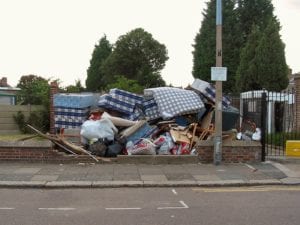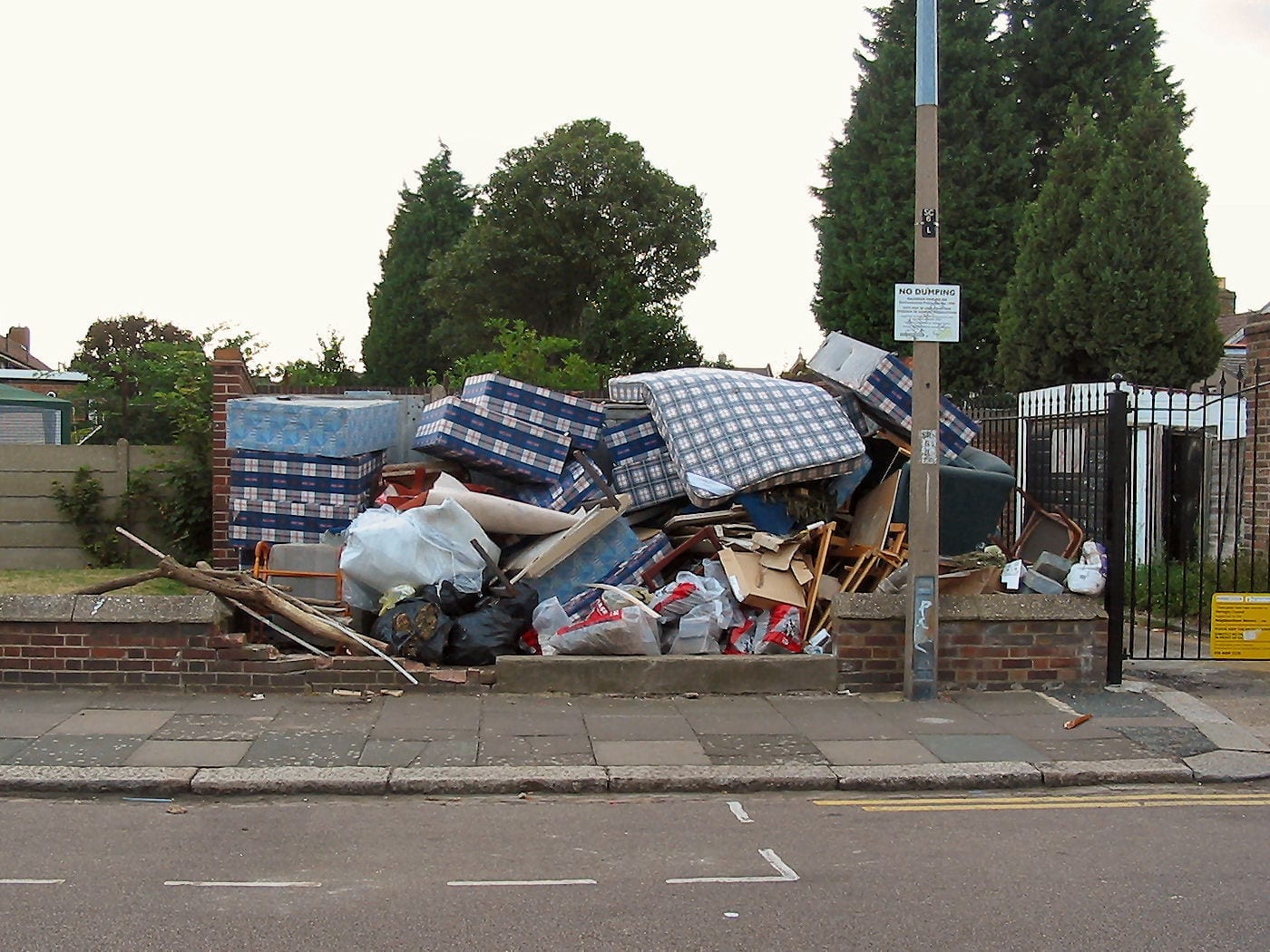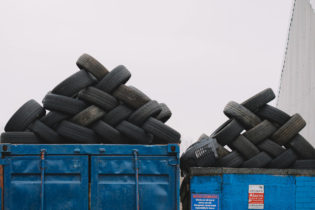Sonnenberg said that illegal dumping was widespread throughout the Cape and that approximately R350 million of its rates budget was spent on clearing dumped material found on vacant land every year.
He indicated that top dumping sites in the Impuma District included Mew Way and Oscar Mpetha Road in Khayelitsha. He said that dumping waste on vacant plots was illegal because of the possible health risks it could have on surrounding communities, as well as the possible degradation of the environment and the impact on municipal infrastructure as waste items carried the potential to create blockages in stormwater or sewerage networks.
Illegal dumping is becoming an increasing concern for residents in South Africa’s city of Cape Town.
The act of illegal dumping, which consists of different types of household waste and rubble, has occurred in vacant areas around the city. This is an open health risk to the residents of the city due to the exposure that waste items have on the environment and air.
Mayco member for utility services, Ernest Sonnenberg told News24 that the City of Cape Town provides a very reliable refuse collection service every day of the year. This includes 25 drop-off facilities across the city, therefore “there is no excuse for dumping waste illegally in suburbs and next to roads,” he said.
“The City has several solid waste drop-off sites where residents can safely dispose of their waste at no cost,” Sonnenberg said. “Those using contractors to dispose of their waste must ensure the contractors are disposing of the waste and rubble in a responsible manner without damage to people or the environment.”
Sonnenberg explained the act of illegal dumping as the unlawful disposal of construction debris, old appliances, furniture, as well as general household, commercial and industrial waste in places other than permitted facilities such as the City’s drop-off sites and landfills.







